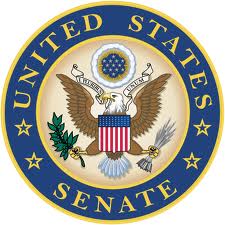 Today the Senate Finance Committee held a hearing on the Transatlantic Trade and Investment Partnership (TTIP), currently under negotiation between the U.S. and the EU. Testimony was delivered by Michael L. Ducker (FedEx), Ryan McCormick (Montana Grain Growers Association), Dave Ricks (Eli Lilly), and William Roenigk (National Chicken Council). All strongly supported the trade agreement, and all voiced their support for the passage of trade promotion authority legislation. The webcast and prepared statements are online here.
Today the Senate Finance Committee held a hearing on the Transatlantic Trade and Investment Partnership (TTIP), currently under negotiation between the U.S. and the EU. Testimony was delivered by Michael L. Ducker (FedEx), Ryan McCormick (Montana Grain Growers Association), Dave Ricks (Eli Lilly), and William Roenigk (National Chicken Council). All strongly supported the trade agreement, and all voiced their support for the passage of trade promotion authority legislation. The webcast and prepared statements are online here.
During the opening statements, Minority Leader Orrin Hatch said that in order for him to support the final text of the agreement “it is absolutely essential that TTIP reflect the highest standard of intellectual property rights protection of any prior agreement.”
Dave Ricks, Senior VP for, Eli Lilly testified that the TTIP must include a strong Investor-State Dispute Settlement system. (His firm is currently engaged in an Investor-State Dispute with Canada. Eli Lilly alleges that Canadian court rulings invalidating certain drug patents are a violation of the North American Free Trade Agreement, and it is seeking $ 500 million in compensation, plus legal fees).
Ricks further testified that TTIP should commit both sides to raise levels of intellectual property protection, which would “serve as the basis for promoting economic growth associated with robust IP protection and enforcement in third countries.”
The assertion that TTIP should be used to raise intellectual property norms that would then apply to countries outside of the negotiations came up frequently during the question and answer period.
During the Q&A, Senator Hatch Challenged U.S. Trade Representative Michael Froman on the issue of intellectual property and access to medicines. His question to Ricks [see minute 58:23 on the webcast]:
Yesterday, it was reported that Ambassador Froman while speaking about the Trans Pacific Partnership negotiations, suggested that there is a tension between protecting intellectual property rights for innovative medicines and ensuring access to medicines. I could not disagree more. To the contrary, strong intellectual property spurs innovation and is therefore essential to providing access to innovative medicines. Could you please comment on why strong intellectual property protection for innovative medicines is important, and also, what steps can be taken by these foreign governments to ensure access to lifesaving medicines that do not include diluting intellectual property rights for U.S. innovators?
Ricks answered
… strong intellectual property is a key issue for us, but it’s not a barrier to access to innovation in more developing markets or anywhere. New products come from the incentive to develop them through the promise of rewards through intellectual property. Without those rewards, it’s difficult to see where those new medicines would come from to begin with.
The real problems with access have to do with “the way health systems function.” He also said that 95% of the World Health Organization’s Essential Medicines list is available as generics.
Senator Brown asked Ricks [minute 1:13:55] about Eli Lilly’s support for an Investor-State Dispute System. He asked why one would be necessary in the TTIP, considering that both the U.S. and the EU have well developed systems of intellectual protection and rule of law.
Ricks answered that the U.S. and European systems do not work identically, and sometimes do not work well. He brought up the Eli-Lilly-Canada dispute, saying:
a large number of patents on medicines are being thrown out by the courts, we think in violation of the principles of NAFTA and TRIPS (the WTO intellectual property regime). We have exhausted all local options in the Canadian courts, including going to the Supreme Court on this issue. And we now have an Investor-State action under NAFTA with Canada. This is really our only recourse to level the playing field to what we think is a global standard. Those types of issues hopefully will not occur with Europe, but they could … so these Investor -State provisions are quite important to ensure predictability over the long run.
When the hearing ended, Senator Hatch stated that he is highly concerned about the issue of data exclusivity for biologics. He asked Ricks to submit extra comments for the record that address this specific issue.




